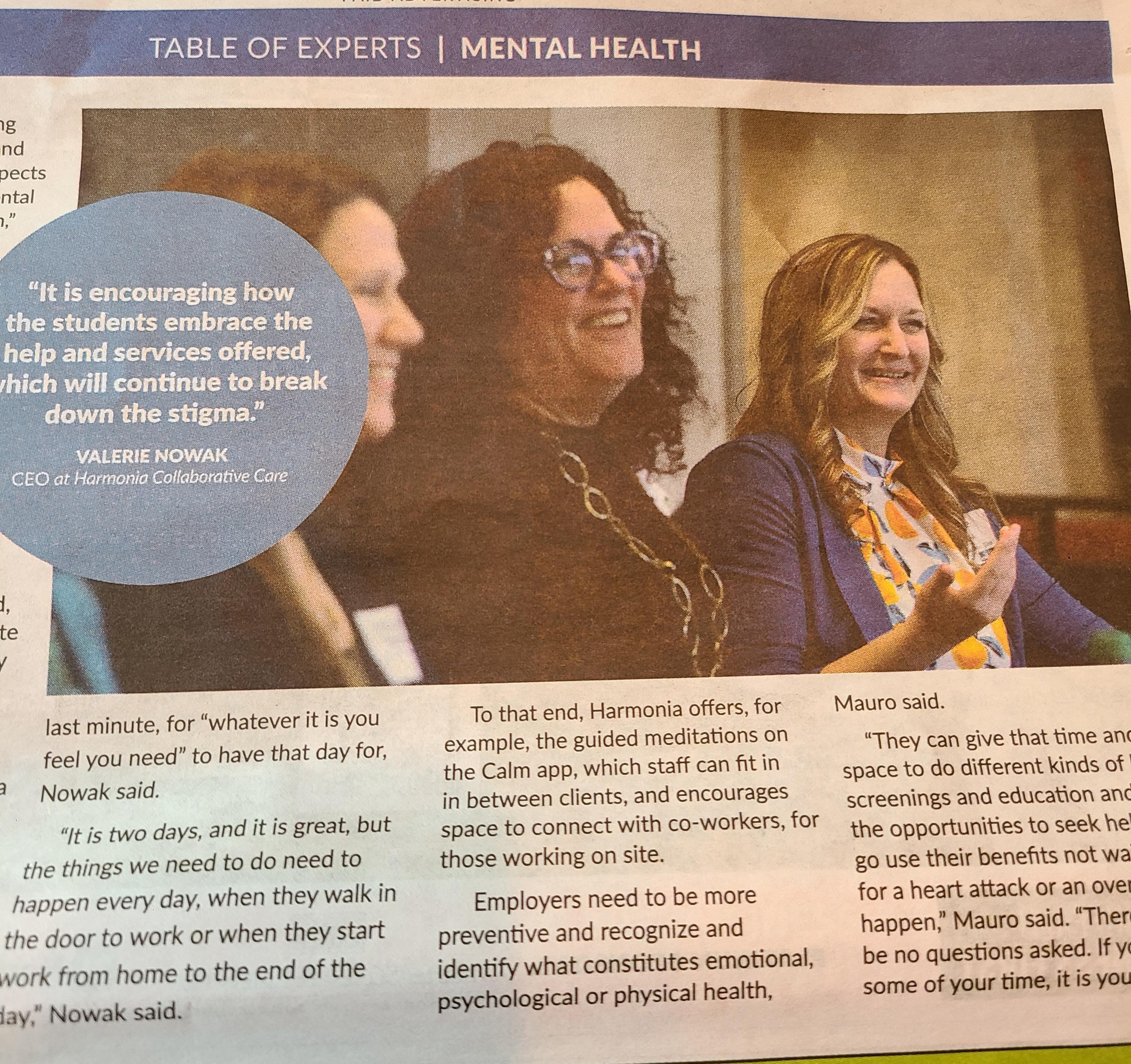

Network in Aging Annual Meeting
Harmonia Supports Caregivers Buffalo News Feature
Recent News
Select a headline to read more.
3 Financial Questions You Might Face in Retirement
Retirement is commonly pictured as a worry-free time of leisure, a well-deserved break after working and saving for decades. But for more than 25 million American seniors, the reality of retirement is much different. One in three seniors struggles to keep up with the bills and more than half of all senior households are in debt. If that’s the case for you, you may be wondering how you’ll get by as you grow older.
These are three common financial questions that seniors face and how you can deal with them.
How can I afford to age in place?
Most seniors want to live at home as long as possible, but that’s hard to do when your home isn’t suited to senior living. Staircases, slick floors, and narrow doorways pose hazards to seniors with mobility problems. While they could move to a more age-friendly home, many seniors are forced to stay put because they’re priced out of the housing market.
Seniors who can’t afford to downsize should look for ways to make their home more age-friendly on a budget. Simple changes like installing grab bars and adding more lighting are a good place to start, but don’t shy away from larger projects. Installing a ramp, for example, can be quite affordable while greatly increasing access for mobility device users. In fact, the price of having a wheelchair ramp typically ranges from $1,400 to $3,000. Replacing flooring is similarly affordable; if a home has high-pile carpet or ceramic tile, installing vinyl or linoleum in high-traffic areas can reduce fall risk. If you need some help paying for these upgrades, consider a home refi. Refinancing allows you to convert your home equity into cash by taking out a new loan.
While you’re able, you might also consider starting a small business to bring in extra income on top of your retirement savings. Having more money to work with will allow you to make the changes needed to live comfortably in your home. Choosing a business based on a hobby you enjoy -- for example, selling crafts you’ve made or working on cars -- is a great way to make your venture doubly fulfilling.
How will I pay for senior care?
At some point, adaptations at home may not be enough to keep a senior safe and independent. At that time, assisted living is usually the best choice for meeting a senior’s needs, but at an average cost of $4,000 a month, paying out-of-pocket for assisted living isn’t an option for many families.
Many seniors wrongly assume that their health insurance will pick up the tab, but Medicare and most private health insurers don’t cover long-term care, only short-term rehabilitative stays. One exception is Medicaid. This health insurance program available to low-income households will pay for long-term care. However, eligibility standards and covered care settings vary by state. Seniors who don’t qualify for Medicaid right away may need to tap into personal assets like their home and retirement savings to cover the care they need until Medicaid kicks in. Alternatively, if a mortgage is paid off, selling the home could cover the bulk of senior care costs, leaving retirement savings for lifestyle and medical expenses. Look up what your home is worth to get an idea for what you can afford to spend on assisted living.
How will I make ends meet after my spouse dies?
The death of a spouse only adds complications to a senior’s finances. The death of a spouse often comes with a drop in income at the same time as medical bills and funeral expenses are due. Social Security survivors benefits soften the blow, but what if it’s not enough to make ends meet?
The best thing seniors can do to weather a spouse’s death is to prepare for it. Seniors should share financial and banking information with their spouse and have a plan to pay for funeral expenses, whether that’s a joint account, burial insurance, or a life insurance policy. Speaking of life insurance: While many adults drop their policy once the kids are grown, life insurance can be a smart choice for seniors who have debt or a spouse who would struggle to get by financially after their death.
Make sure all your records are in one place so you can easily access them when you need to. By digitizing your records, you can organize your documents and ensure that you never lose them. Once you’ve scanned your records, use a PDF file merger tool to hold all your records on one larger file.
The truth is, many Americans won’t realize the dream of a paid-off home and padded travel fund in retirement. However, that shouldn’t mean they have to go without the things they need to age well. While these financial questions add challenges to growing older, with the right strategy and resources, seniors can overcome them and enjoy a comfortable lifestyle while aging.
Harmonia Collaborative Care provides compassionate care and brings balance to the lives of individuals in need of behavioral health and senior care services. Call 716.947.5025 today.
